The Co-op Group teamed up with Social Enterprise UK to celebrate Social Saturday on 13 October.
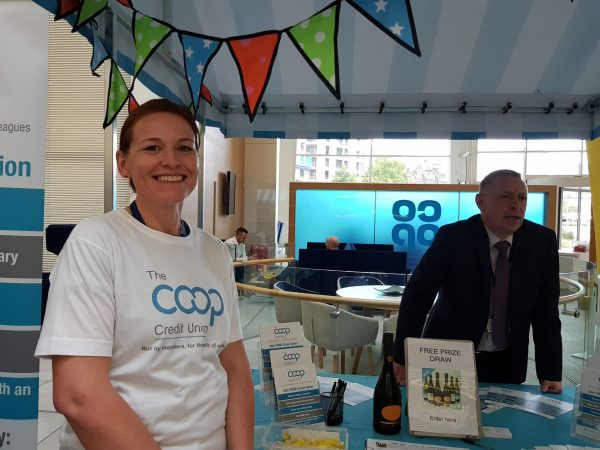
The retailer hosted a launch event at its Manchester HQ, where colleagues tasted samples from HM Pasties and Cowherds, a social enterprise, and took part in a race to build a Fairphone. They also learnt about the services offered by the Co-operative Credit Union.
Chief executive of Social Enterprise UK, Peter Holbrook, said: “The days of Robert Owen, of the Rochdale Pioneers – those issues are even more relevant today than they were back then.
“We desperately need to find a new way of doing business, one that is fit for the kind of challenges that our communities and countries and the world are facing. And I believe that co-operation, mutuals and social businesses give us a little glimpse into the future. Businesses you can see around me today are fundamentally built on a belief that businesses can be used as a force for good. Launching Social Saturday here with Co-op Group as a key partner seems 100% fitting.
“A social business is all about taking back control of our economy, businesses and communities so that they work to meet our needs, rather than the needs of a small minority.”
Comedian and writer Chris Addison, a patron of Social Enterprise UK, was a special guest at the event. He said that, although social businesses was in its infancy, “this kind of economy will become the norm”.
After engaging with Co-op Group employees and social businesses, he joined a tour of local co-ops and social enterprises. Transport was provided by local bus operator Manchester Community Transport (MCT), part of the HTC Group, a social enterprise.
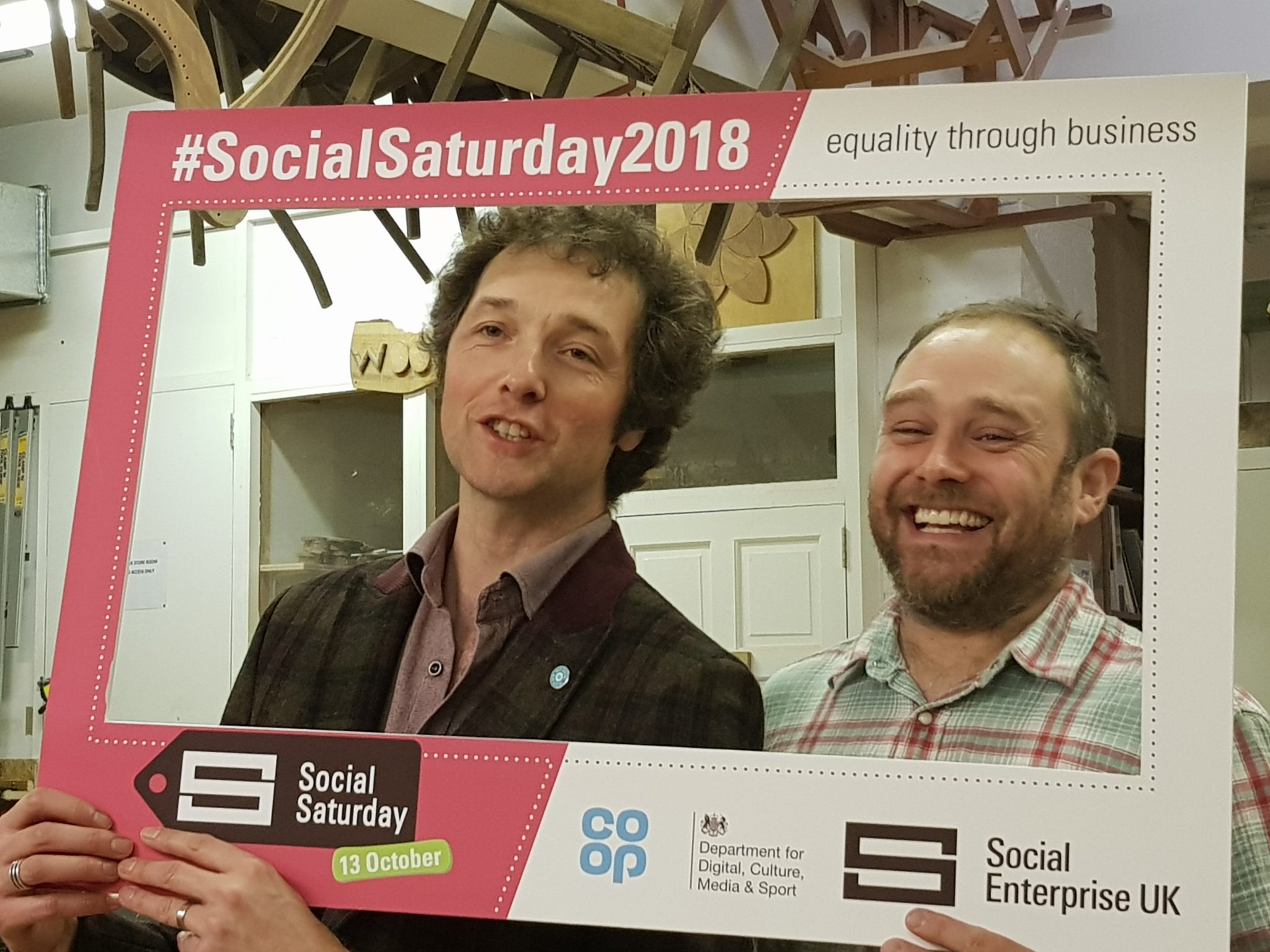
The first stop was Start Creative, the commercial arm of Start in Salford, a charity helping vulnerable people in the local community to gain new skills and nurture their creative talent. The Salford-based centre boasts art and media studios, craft workshops and gardens. Its professional tutors train members, who can then become trainers themselves once they have completed the course.
Related: Social enterprises ‘put £60bn into UK economy’
The centre works with other co-ops as well. Manager Ben Thomas explained how chopping boards produced on the premises of Start Creative were sold at Unicorn Grocery co-op in Chorlton, using wood used from Tree Station, a community benefit society in Greater Manchester.
Other retail partners included employee-owned John Lewis, the Lowry and the National Football Museum. The revenue made through the commercial arm goes back into supporting the charity.
“It’s a community resource,” said Mr Thomas.
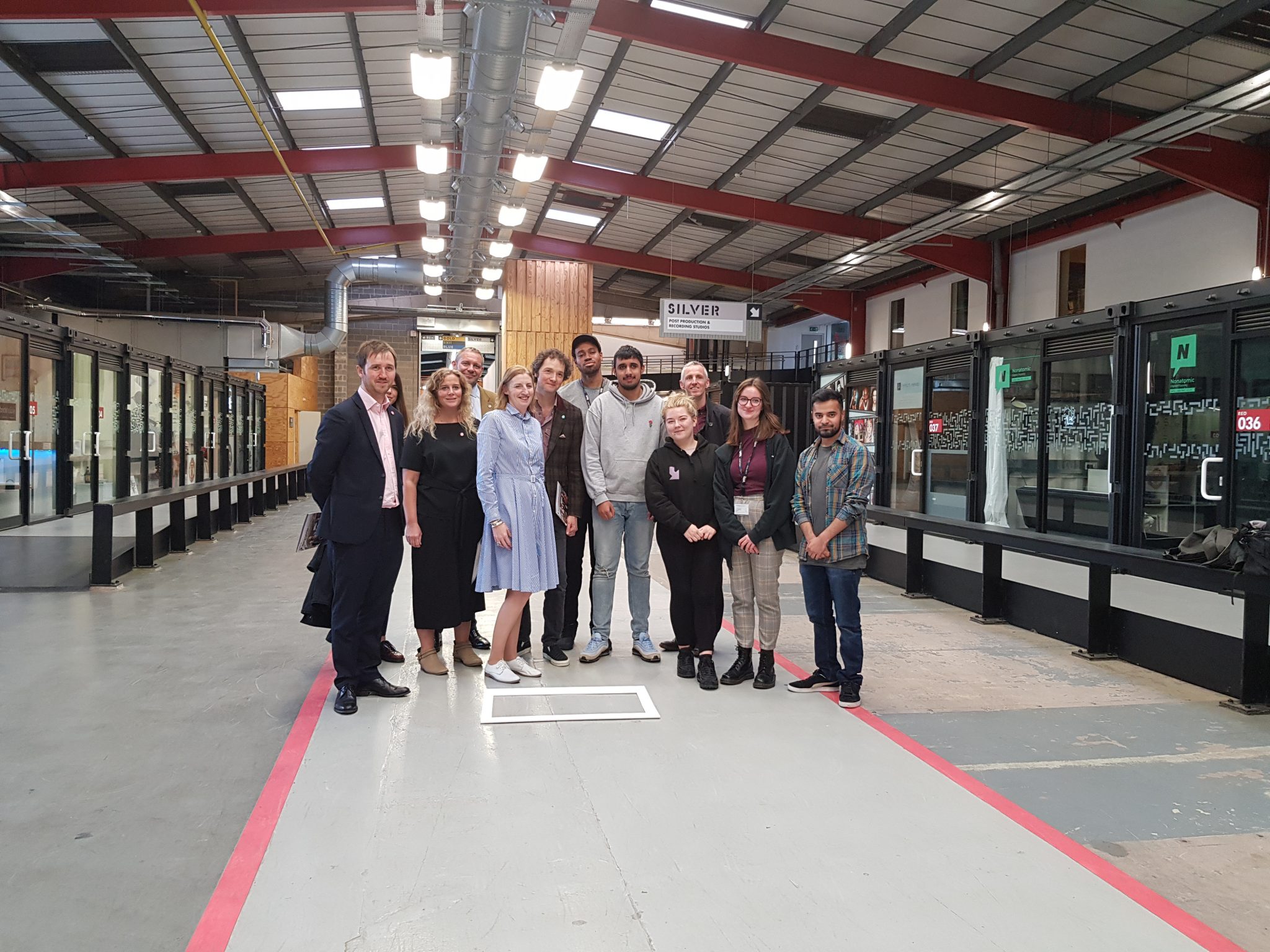
Next on the tour was SharpFutures, a social enterprise set up five years ago to help young people find employment in the creative digital and tech sectors. It delivers PR, marketing, graphic and digital design, social media, events management and runner support services to the Sharp Project and Space Studios.
The Sharp Project occupies the former premises of Sharp Electronics, a 200,000 sq ft site acquired by Manchester City Council in 2006. Director and co-founding CEO, Rose Marley, said the aim of the project was to provide digital jobs for local people. Once the BBC moved a substantial part of its workforce to Manchester, the building was brought back into use.
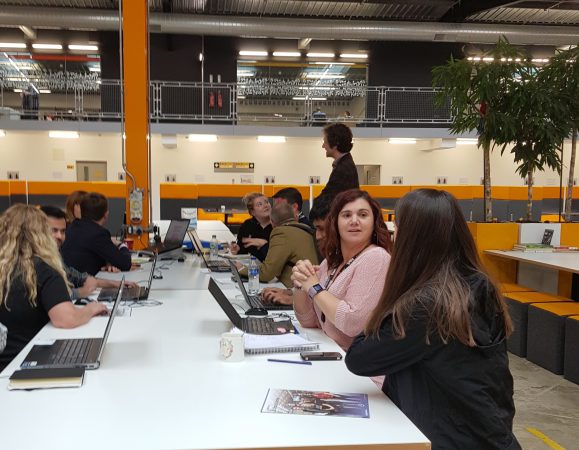
“Businesses need to be involved in digital content to be based here,” says Ms Marley.
Through apprenticeships, work experience and volunteering, SharpFutures also responds to the fluctuating needs of digital businesses.
So far, it has helped 20 young people take 30 apprenticeships – and all those who completed the process have found work.
Another 33 fully paid work placements helped 88% of those completing the process move on to sector-specific apprenticeships and employment. Around 48% of those doing the placements were previously not in education, employment or training, or on Jobseeker’s Allowance.
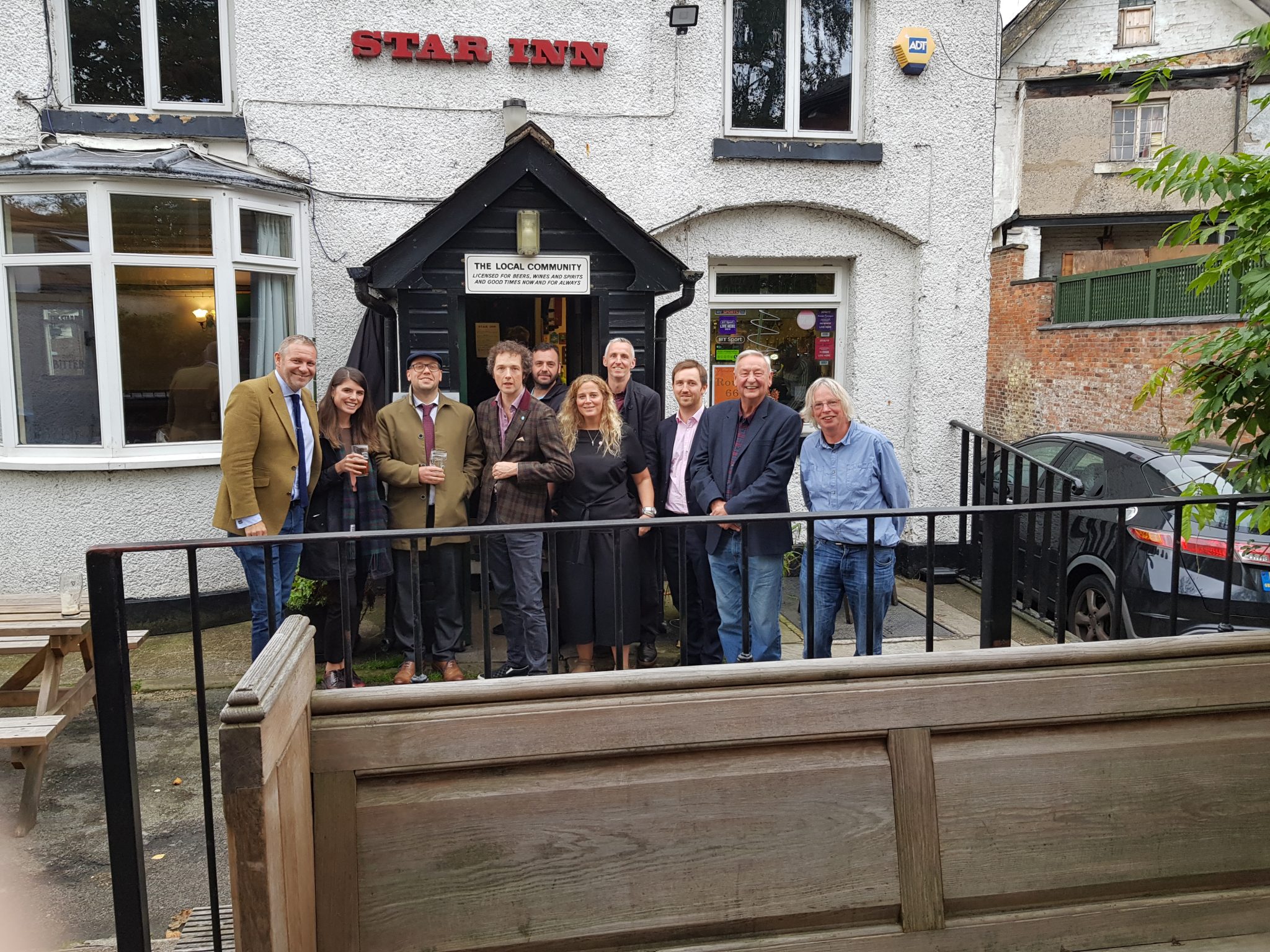
After Sharp Futures, the tour continued with the Star Inn pub in Salford. A co-operative, the pub is owned by local people, who bought shares for minimum of £100 – and during the visit, Mr Holbrook bought a share on behalf of Social Enterprise UK.
The building, which dates back to the 1840s, was bought by locals for £80,000 when its owner Robinsons Brewery decided to sell it. The locals established a company limited by guarantee and, once the sale was complete, switched to the co-op model with investors receiving shares.
The first co-operatively owned urban pub, it received support from Co-operatives UK and Plunkett Foundation while setting up, while revonvations were done by local volunteers. The pub is run by an elected management group with seven members.
Manager Paul McVay has been with the pub since 2016. “Robinsons wouldn’t sell it directly to the local people,” he said. “It went to auction and eventually the community bought it. It is a big community pub where everyone is welcomed … We are doing really well.”
Members include local students, who buy into the pub because “there is no place like it”, and it has become a community hub for locals with folk events, darts competitions, Halloween parties and quiz nights, welcoming people of different backgrounds.
“There is so much heritage. Every pub is unique but this one is particularly unique,” says a member who sits on the management committee.
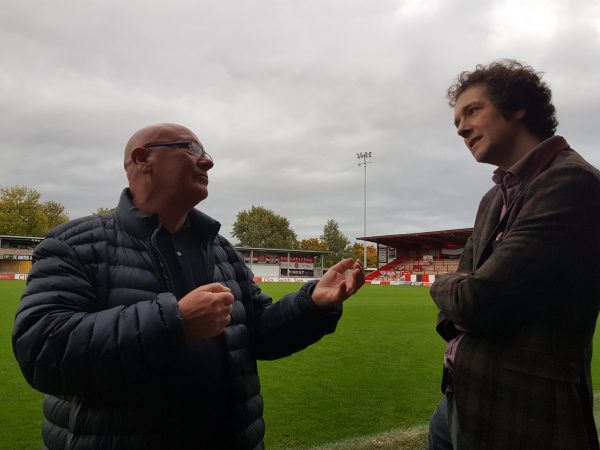
The trip ended with a visit to FC United of Manchester, a semi professional co-operative football club owned by 1,841 members through a supporters’ trust. The project started in 2005 when fans of Manchester United decided to set up their own club in response to the takeover by Malcom Glazer. In just 17 weeks the fans raised £100,000.
After ground-sharing with Bury between 2005 and 2015, FC United opened their own ground at Broadhurst Park in north-east Manchester. The stadium required an investment of £6.4m and has a 4,400 capacity. The money was acquired using £2m from a community share scheme along with various government and charity grants.
In addition to the first team, which plays in the National League North Table, the club runs an U21/U18 team, a youth team, academy teams and a women’s team.
To make the game more accessible, the club also runs a pay-what-you-can scheme, with some members to subsidising others who may not afford the price of a season ticket.
In terms of governance, the trust is run by a board of directors elected by the wider membership.
“It’s been fun, it’s been an education and a privilege,” says community liaison officer Vinny Thompson. He explains that the club has big dreams and long term plans, and aims to get to the top level.
In the run-up to Social Saturday over 50 social enterprises across the UK will be hosting events to celebrate the sector’s contribution to local communities.

